
Make Thriving the Norm! Department of Human Development & Family Studies A ROADMAP & CALL TO ACTION 2023-2028 STRATEGIC PLAN Family Resiliency Center FEBRUARY 2023
vision

Make thriving the norm.
mission
Together, we wrap around wicked public health and social justice problems, ultimately leveraging strengths towards mitigating harm, preventing suffering, and optimizing lives of families, children, youth, individuals, and communities.
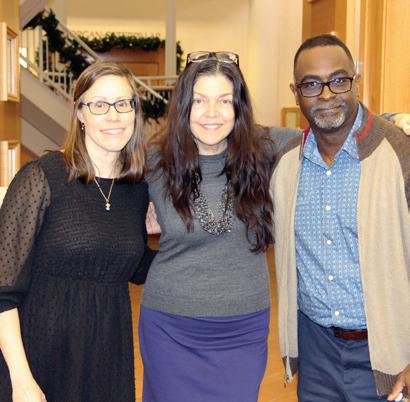
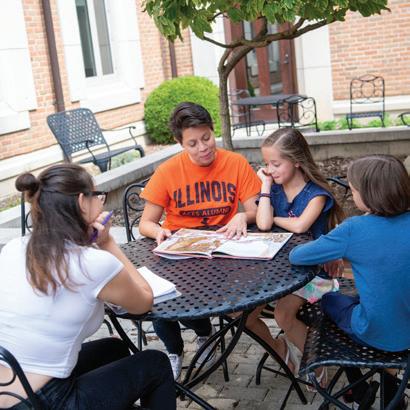
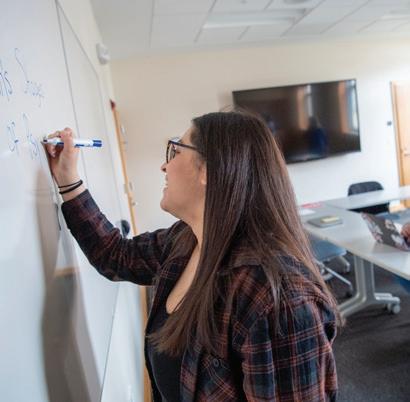
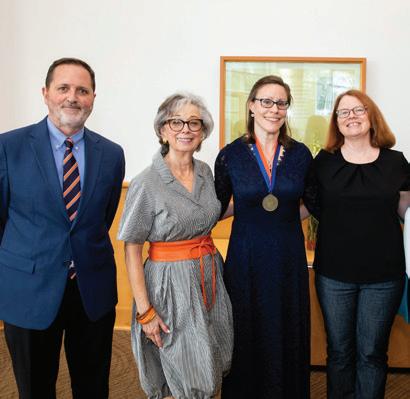
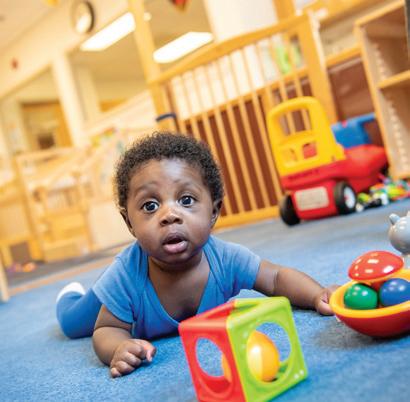
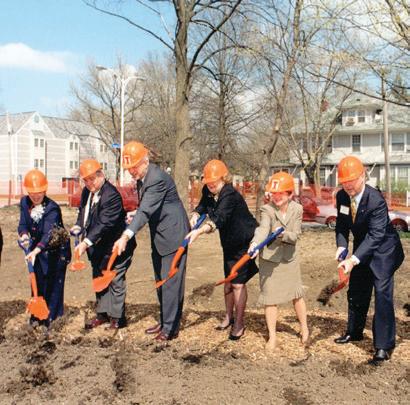
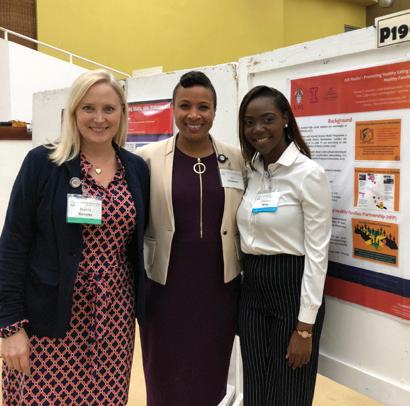

Taking a holistic and participatory approach, FRC balances scientific rigor with contextual sensitivity in designing, conducting, and translating research into actionable and impactful practices and policies that are responsive to emergent local, regional, and national public health and social justice needs and priorities to improve lives.
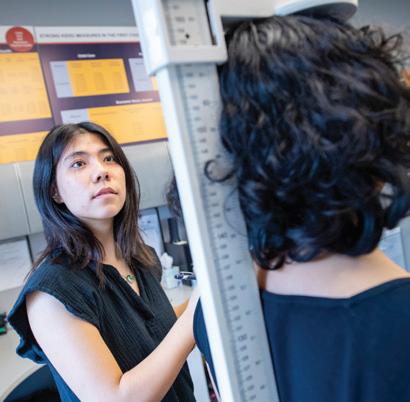
3 PLAN OVERVIEW 4 FRC LEADERSHIP & BRIEF HISTORY OF FRC 9 FRC’S STRATEGY 1: RESEARCH 5 POINTS OF DISTINCTION 6 STRATEGIC PLAN PROCESS 10 FRC’S STRATEGY 2: CULTURE 12 FRC’S STRATEGY 3: PARTNERSHIPS 8 STRATEGIC GOALS TABLE OF CONTENTS
14 FRC’S STRATEGIES 4, 5 & 6: TRAINING, SYSTEMS, INFRASTRUCTURE 15 ENGAGEMENT OPPORTUNITIES
purpose
PLAN OVERVIEW
The Family Resiliency Center (FRC) is a transdisciplinary, participatory, and translational research center committed to making thriving the norm, the center’s vision. Our mission is to wrap around wicked public health and social justice problems, ultimately leveraging strengths towards mitigating harm, preventing suffering, and optimizing the lives of families, children, youth, and communities.
This strategic plan was developed in collaboration with over 200 vested participants representing communities, service sectors, and the academy. It outlines how we will achieve our vision and mission over the next five years (2023-2028). The FRC strategic plan serves as a framework and roadmap to guide our decisions and actions. The plan includes three overarching goals, six strategies, and related action steps. It incorporates built-in flexibility and room for growth to meet emerging needs
Our work centers in five intersecting research areas, referred to as our FRAME Research Hubs (see details in Strategy 1). In these areas we co-create evidence to improve lives and optimize public health.
▶ Family, child, youth, and community health – optimizing entwined lives, contexts, and outcomes
▶ Risk, resilience, and thriving – taking an empowerment approach to transform “risk” from a four-letter bad word into growth opportunities
▶ Arousal and regulation – leveraging arousal’s motivational potential through regulation
▶ Mindfulness and well-being – making low-cost, scalable, and sustainable evidence-based practices accessible
▶ Evidence – utilizing stats and stories to build an evidence-base with real-world application
We create impact with and by our FRC Collaboratory of academic, community, provider, and student partners committed to FRAME research solutions (see details in Strategy 3). Our actions and work are characterized by Mettle, meaning to cope with difficulties and have resilience. Prioritizing action, at FRC, we:
▶ Mobilize through capacities, communities, and consortia building
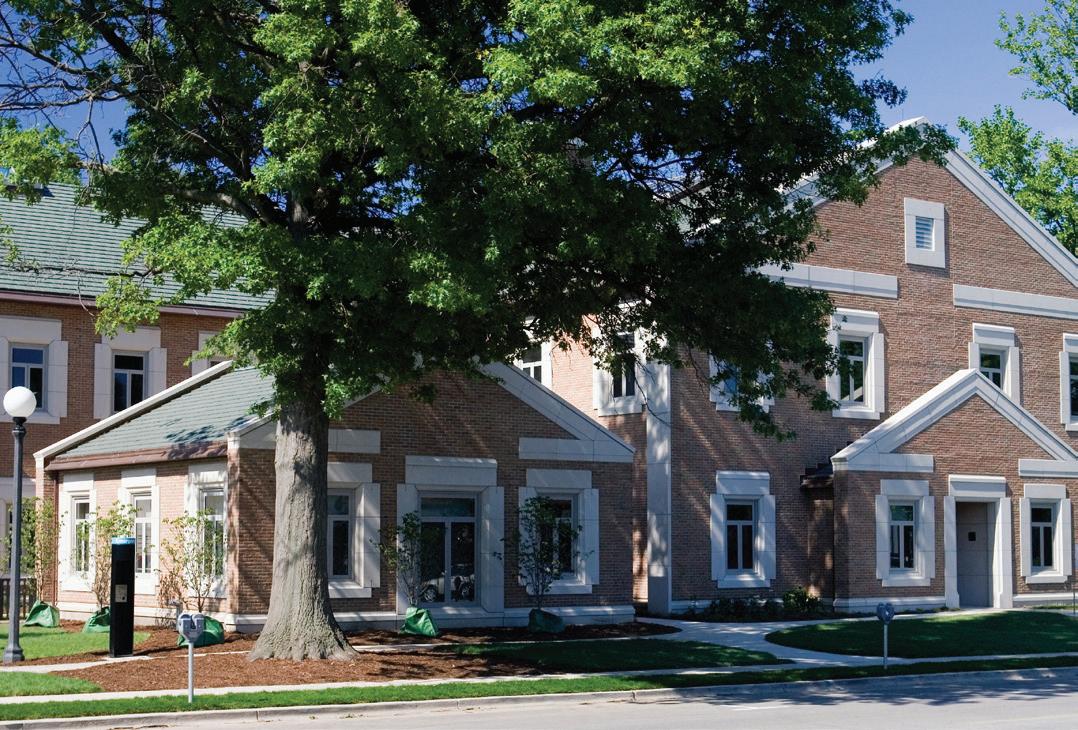
▶ Evaluate what works, for whom, and in what context
▶ Translate (communicate) and apply findings into practical and actionable tools
▶ Train students, faculty, staff, and community members
▶ Lead research initiatives across five research hubs
▶ Expert match-make: collaborators, content, approaches, dissemination
We are excited to share this strategic plan. We invite you to collaborate with us to co-create something great, robust, and strategic so thriving will be the norm within our lifetime!
Be well,
Jacinda Dariotis, Director
3
FRC LEADERSHIP
2020 – PRESENT: Dr. Jacinda K.
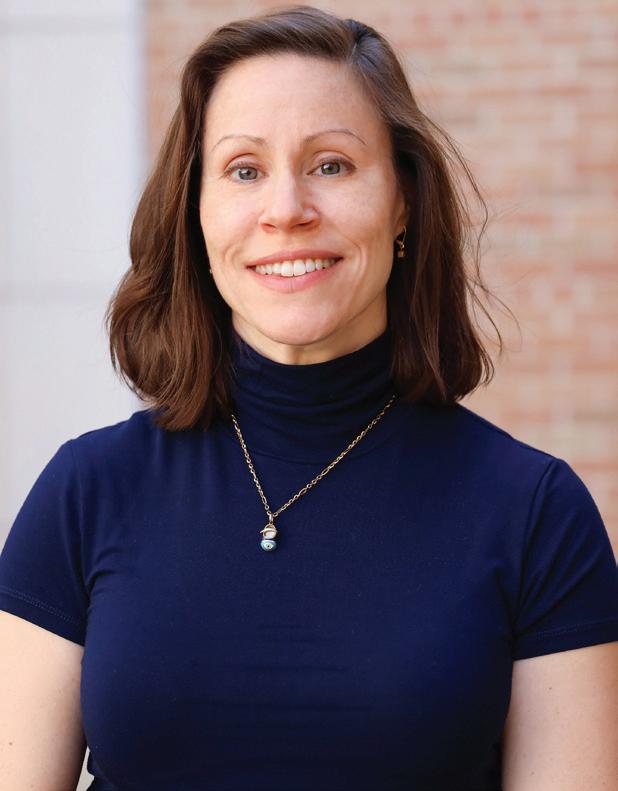 Dariotis, Director
Dariotis, Director
Jacinda is the Pampered Chef Ltd. Endowed Chair in Family Resiliency and full professor in the Department of Human Development and Family Studies (HDFS), a Health Innovation Professor in the Carle Illinois College of Medicine, a faculty member in Kinesiology and Community Health, a faculty affiliate member of the Beckman Institute for Advanced Science and Technology, Institute for Behavioral Genomics, and Personalized Nutrition Initiative at Illinois. She has been teaching, advising, and conducting research for over 20 years and embraces a transdisciplinary participatory approach to research, translation, and dissemination.
brief history of FRC
2002: FRC’S START FRC is established within the Department of Human Development & Family Studies.
2008: Director Barbara H. Fiese secures multiple sources of funding, leading to cuttingedge, transdisciplinary research and ambitious projects.
2002
Below: Investiture | ACES Interim Dean Germán Bollero, Donor Doris Kelley Christopher, Endowed Chair Jacinda Dariotis, HDFS Department Head Ramona Oswald, Vice Provost Lisa Monda-Amaya
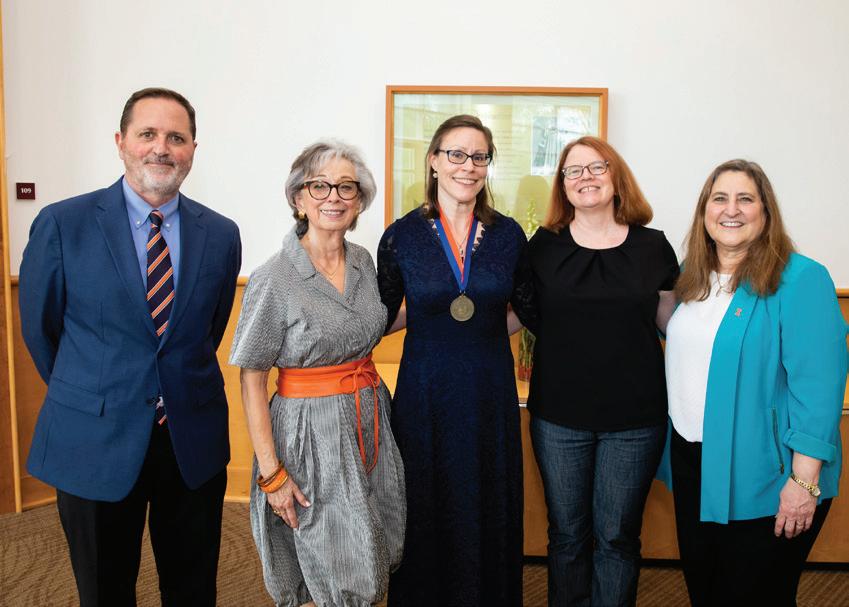
2011: The Illinois Transdisciplinary Obesity Prevention Program (I-TOPP) begins, training students in multiple disciplines.
2011 2010 2008 2006
2006: FRC’S NEW HOME FRC is housed in the newly built Doris Kelley Christopher Hall, along with The Autism Program’s Resource Room.
2010: GENEROUS GIFT FRC receives $800,000 from the Christopher Family Foundation to create the Food and Family Program. The STRONG Kids and Abriendo Caminos projects also begin.
4
points of distinction
2008 – 2020
Dr. Barbara H. Fiese, Director
FRC brings unique value-add to partnerships, near and far:
▶ We center around participatory and community-based principles.
▶ We co-create transdisciplinary approaches and teams.
2007 – 2008
Dr. Constance Shapiro, Interim Director
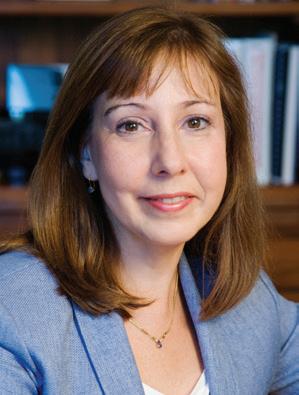
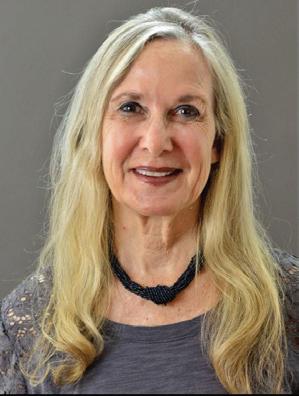

▶ We use family, development, and systems lenses.
▶ We develop and implement center-led projects.
2002 – 2007
Dr. Laurie Kramer, Director
▶ We translate research into practice and policy.
▶ We prioritize capacity building and sustainability.
HELPING OTHERS THRIVE OVER TIME
2013: MEALS IN THE REAL WORLD
FRC’s expanded Mealtime Minutes public-service announcements receive nearly 200 million impressions. 2019
2013
2019: FRC co-hosts the Food and Family Conference in Chicago, bringing together the nation’s foremost experts in the varied realms of health.
2022: INTERSECTING RESEARCH HUBS Director Jacinda K. Dariotis leads FRC into a new era of transdisciplinary participatory research that is committed to addressing wicked problems and making thriving the norm.
2020 2022 2023
2020: FRC hires new director, Jacinda K. Dariotis
2023: FRC launches strategic plan through 2028.
5
STRATEGIC PLANNING PROCESS
plan development overview
An Illinois Extension team of four facilitators collected and analyzed survey, interview, and focus group data among former, current, and potential future collaborators and partners; a steering committee further analyzed and generated an initial plan; and Director Dariotis embarked on a “listening tour” with community and academic partners whose feedback helped refine the plan.
210+ 25+ 85 60 48
TOTAL PARTICIPANTS
LISTENING
TOUR PARTICIPANTS
partnering with Illinois Extension
Our approach was to create an inclusive, flexible, and evolving document.”
“
— Jacinda Dariotis, Director
INTERVIEW & FOCUS GROUP SURVEY ACADEMIC COMMUNITY
Mindful that engaging facilitators external to the core FRC team would promote more candid responses about FRC’s past and current strengths, weaknesses, opportunities, and threats, FRC partnered with the University of Illinois Extension’s Community and Economic Development team. Zach Kennedy, extension specialist, led a team of four to facilitate the strategic planning process. This was a natural extension of past FRC-Extension partnerships and commitment to ongoing collaboration. Mr. Kennedy continues his investment in the process as an active FRC Steering Committee member. 6
NOV 2020
Newsletter Survey
steering committee
Academic and community professionals whose research interest and work expertise align with the areas that are addressed by FRC agreed to serve on the steering committee to draft the strategic plan. They committed to meeting weekly over two summers and monthly throughout the fall, winter, and spring on an ongoing basis.
JAN/FEB 2021
Online Survey
MAR/APR 2021
Interviews & Focus Groups
JUNE – AUG 2021
Initial Plan Development (Steering)
SUMMER 2021 – SUMMER 2022
Listening Tour & Plan Refinement
FALL 2022
Finalize Plan & Pilot Action Steps
SPRING 2023
Plan Launch
▶ Beverley Baker Chief Impact Officer, United Way of Champaign County
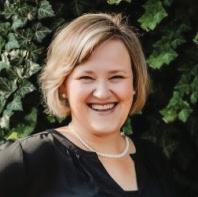
▶ Liza Berdychevsky Associate Professor, Dept. of Recreation, Sport & Tourism, College of Applied Health Sciences
▶ Chaundra Bishop Regional Health Officer, Illinois Department of Public Health

▶ Melissa Edwards Assistant Vice Chancellor for Research & Innovation, UIUC (original member)

▶ Zach Kennedy Extension Specialist, Community & Economic Development, Illinois Extension
▶ Brent McBride Director, Child Development Laboratory & Professor, Dept. of HDFS, College of ACES
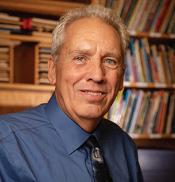
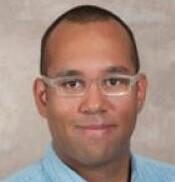
▶ Andiara Schwingel Associate Professor, Dept. of Kinesiology & Community Health, College of Applied Health Sciences
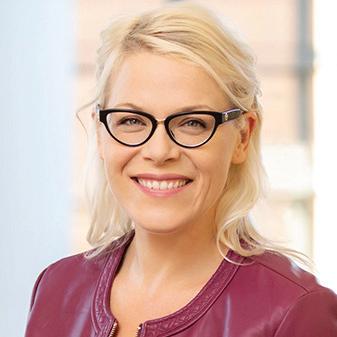

▶ Kelly Tu Associate Professor, Dept. of HDFS, College of ACES
▶ Ex officio members: Jacinda Dariotis & Brenda Koester
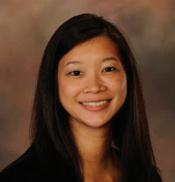
timeline
7
STRATEGIC GOALS
goal 1
Maintain an expert reputation recognized nationally, regionally, and locally for translating research into actionable and impactful practices and policies responsive to community needs to promote family, community, and individual resilience and thriving.
Supported by Research, Training, Partnership, and Systems Strategies.
Planned Actions:
goal 2
Clearly identify FRC’s unique value-adds Increase FRC’s visibility and reach with communication plan and impactful resources
Situate FRC in the national and local initiative landscapes and asset maps
Mobilize and maintain a transdisciplinary participatory culture as the bedrock of FRC.
Supported by Partnership and Training Strategies.
Planned Actions:
Establish research hub co-leads (cross-sector and academic-community)
goal 3
Innovate transdisciplinary and participatory training opportunities
Establish advisory boards to shape agendas and a collaboratory with bidirectional benefits and contributions
Establish a transformative, sustainable, and diversified funding portfolio.
Supported by Research, Training, Infrastructure, and Systems Strategies.
Planned Actions:
Assess continuous improvement
Utilize a criteria-based decision tree for pursuing funding opportunities
Develop business plan
8
FRC’S STRATEGY 1
Maintain a diversified, inclusive, and adaptive research portfolio (in value-added areas) using the FRAME Framework
The FRAME framework builds upon our past research strengths in the areas of family and food to include Family, child, youth, and community health more broadly defined and substantive areas of Risk, resilience, and thriving; Arousal and regulation; and Mindfulness and well-being. Undergirding these substantive hubs is “Evidence – stats and stories” or the sciences applied to studying content areas. These sciences span participatory research; decision-making; data science and informatics; biostatistics; prevention science; evaluation; dissemination; and implementation.
Although the research hubs appear distinct in the graphic image, the entwining stems denote that these hubs intersect to address wicked problems. Overlapping hub foci of research projects (see separate sheet titled “Research Projects” for details) further demonstrates how most of the work of FRC and its collaborators is at the INTERSECTION or nexus of these hubs, which makes our work authentically transdisciplinary.
What are wicked problems? First introduced by Rittel and Webber in 1973, wicked problems refers to problems that are large, complex, intractable, ill-defined, constantly morphing, defies single or simple solutions, never completely solved, and exacerbated by other interrelated issues. Progress made is often accompanied by setbacks in other areas. These types of problems cannot be addressed by one discipline, sector, program, or policy. Doing so is akin to a game of whack-a-mole. Having transdisciplinary teams increases the likelihood of making lasting change. Example wicked problems addressed by FRC and its collaborators include chronic and toxic stress, adverse childhood experiences, food insecurity, healthy disparities, suboptimal learning environments, environmental influences on health, impulsive decision making, and poverty.
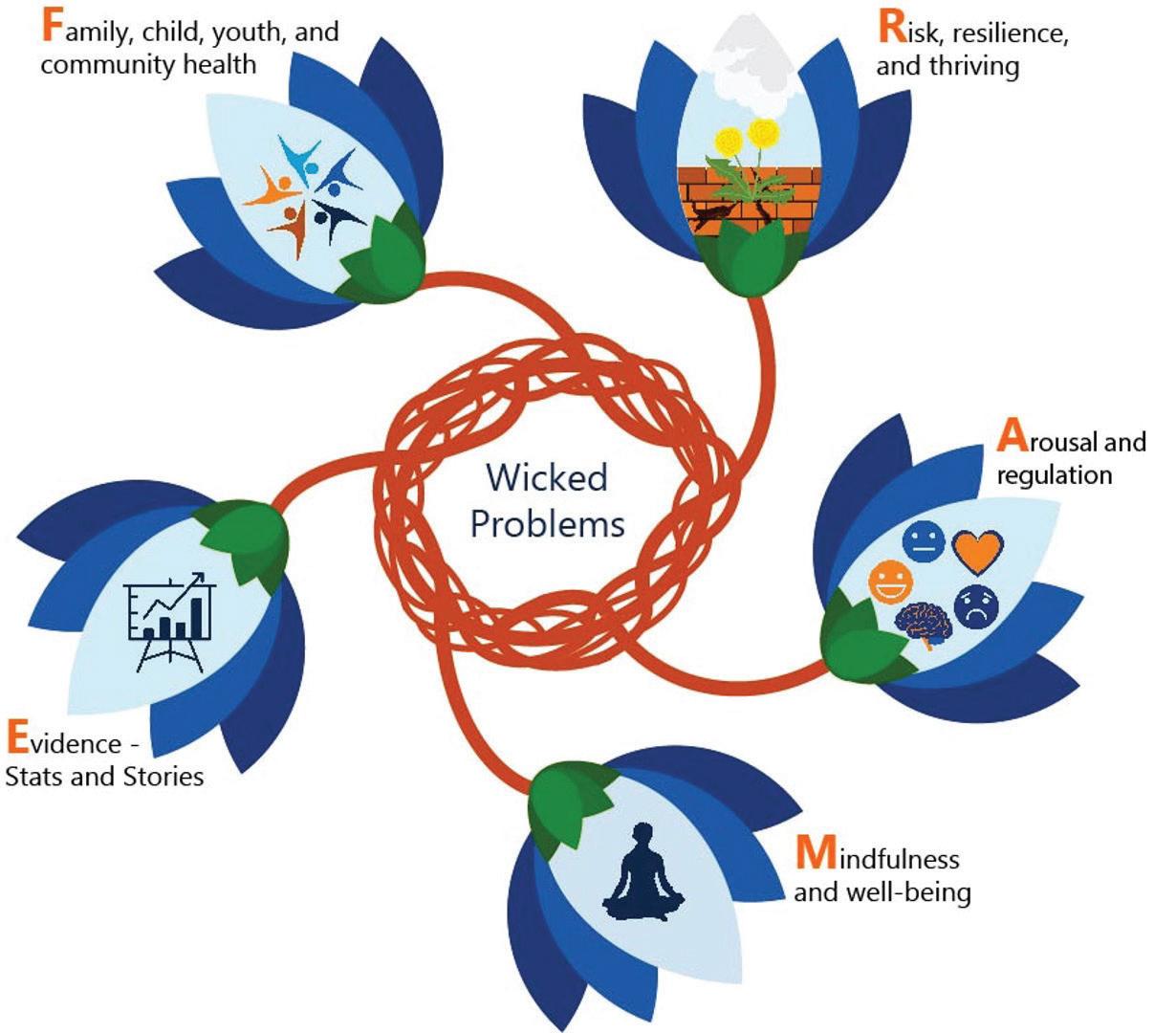
Graphic adapted from the following source: Rittel and Webber, 1973 Solutions are not right/ wrong, but better/worse Every solution ramifies throughout the system Can take a long time to evaluate solutions WICKED PROBLEMS There is no clear problem definition Are multicausal, multiscalar & interconnected Multiple stakeholders with conflicting agendas Straddle organizational & disciplinary boundaries Every wicked problem is connected to others Problems are never completely solved Every problem is unique
9
FRC’S STRATEGY 2
Mobilize and maintain a transdisciplinary participatory culture as the bedrock of FRC to co-create, adapt, leverage, and elevate strengths, resources, and efforts across a diverse, equitable, and inclusive community of collaborators from a variety of sectors and disciplines.
“Nothing about us without us” – author unknown: “with,” “by,” “both,” “and” FRC’s transdisciplinary participatory approach to research, practice, and policy departs from traditional helicopter science and multi- or inter-disciplinary approaches in several key ways.
What is meant by transdisciplinary ?
Scientific disciplines and practice sectors integrate to study topics and in doing so, lose their boundaries and blur together to create new models and shared language of understanding. The FRC Collaboratory, a community of collaborators from a variety of sectors and disciplines with benefits received and contributions made to solve wicked problems, will ensure community, service, policy, and academic expertise informs research, education, and outreach efforts.
What is meant by translation?
Taking a holistic and participatory approach, FRC balances scientific rigor with contextual sensitivity in designing, conducting, and translating research into actionable and impactful practices and policies that are responsive to emergent local, regional, and national public health and social justice needs, priorities, and wicked problems to improve lives.
Transdisciplinary
Graphic adapted from the following source: ian.umces.edu/blog/transdisciplinaryliteracy-seven-principles-that-help-define-transdisciplinary-research
Research
Practice • Policy
Knowledge-brokering approaches
Problem Difficulty Research Approaches Transdisciplinary Interdisciplinary Multidisciplinary Disciplinary Complex Complicated Simple Graphic adapted from the following source: Zhang et al., 2022 Translation, Outreach & Engagement Research Helping people understand knowledge KNOWLEDGE TRANSFER Enabling access to knowledge KNOWLEDGE TRANSLATION Improving twoway interaction KNOWLEDGE EXCHANGE Integrating knowledge users to research process KNOWLEDGE CO-PRODUCTION Policy/ practice Interaction between scientific “producers” and “users”
•
10
What is meant by participatory ? In partnership with communities, youth, families, and others, FRC seeks to co-create and co-implement research agendas and projects that build knowledge and capacity of all partners, resulting in growth and development of all team members through collaboration. We team together to charge agents. We collaborate with youth and community members to conduct research and use the research results for action change.
In keeping with Youth Participatory Action Research and Community-Based Participatory Research principles, FRC is incorporating youth and community member voices and expertise into research agenda, program, and policy development through advisory boards
Participatory
Graphic adapted from the following source: Balazs & Morello-Frosch, 2013
research projects
1 Community-Based
The Family Resiliency Center is home to cutting-edge research, education, and outreach initiatives that enrich the well-being of children, youth, families, and communities. Below is a list of selected recent projects.
Mixed Methods Study of COVID-19 Experiences: This study examines role reversal, overload, stress, and resilience to document how families, youth, and child care providers have and continue to cope with COVID-19. It informs needed policies and resources for this and future public health crises. (F, R, M, E)*
Building the Next Generation of Engaged Researchers: Utilizing Youth Participatory Action Research to Engage Teens in Community Policy Change: This collaborative project, across researchers at UIUC and UIC and Extension, build research and policy skills and attitudes among youth ages 13-18 to inform local and state programs and policies impacting young people.
(F, R, E)
Synergistic Theory and Research on Nutrition and Obesity Group (STRONG) Kids Program: This study explores how individual biology interacts with the family environment to promote healthy eating habits in young children. It is one of the first studies to take a longitudinal look at eating habits from a child's birth. (F, R, E)
Teenage Health and Well-being (THAW): This study investigates how mindfulness practices (breathing, meditation) beneficially impact stress physiology of underlying externalizing behaviors among low-income, largely minority adolescents relative to health education programming. (F, R, A, M, E)
CACFP Food Program and Family Child Care Study: This research project aims to identify the impact of the COVID-19 pandemic and policies and procedures of the Child & Adult Care Food Program (CACFP) that impact family child care providers’ access to the program. (F, R, E)
Nutritional Challenges of People Who Have Experienced Cancer: This project is working to identify the role that food security plays in cancer survivorship and how people with a history of cancer prioritize their nutrition and food needs. (F, R, E)
*FRAME research hubs: Family, child, youth, and community health; Risk, resilience, and thriving; Arousal and regulation; Mindfulness and well-being; and Evidence
“Helicopter Science” Context influences study design and research questions Participation in dissemination of results Partners in research, protocol design, fundraising, data ownership No influences on research design
actively solicited through pre- & post-data collection
study results & partnerships to promote social change
...to Research Partner
1 YPAR2 Level of Community Engagement
Opinions
Leverages
From Study Participant...
CBPR
Participatory Research
Research
2 Youth Participatory Action
“to”
Doing
and “for”
Doing “with” and “by”
11
FRC’S STRATEGY 3
Through the FRC Collaboratory, we are formalizing partnerships with members within and outside the University of Illinois. This strategic plan expands the previous affiliate program in numerous ways including students, community organizations and members, external academic peers, and organizations across the nation to partner with FRC.
Collaboratory: FRC’s Superpower for Addressing Wicked Problems
With and by our FRC Collaboratory of academic, community, provider, and student partners – all of whom are committed to FRAME research solutions – we address wicked problems. We welcome others who share similar priorities and recognize a need to collaborate, combine resources, and seek opportunities together to address wicked problems. Authentic, mutually beneficial, and long-term partnerships. With. By. Both. And.
Taking a holistic and participatory approach, FRC balances scientific rigor with contextual sensitivity in designing, conducting, and translating research into actionable and impactful practices and policies at local, regional, and national levels.
The collaboratory process starts with an application that recognizes varying expectations for benefits received and contributions made by collaborators: affiliates (fewer expectations) and partners (more investment). The two-tiered approach allows collaborators to choose an engagement level best aligned with their needs and resources. (see familyresiliency.illinois.edu/collaboratory for details). Discover the benefits and opportunities of working with FRC.
Core Principles
Novel
Transdisciplinary
Evidence-based
Responsive
Synergistic
Community-based
Translational
Sustainabilty
Leverage existing and identify new partnerships with others who share similar priorities but need to collaborate and combine resources and seek opportunities together to address wicked problems. (Authentic, mutually beneficial, and long-term partnerships; with, by, both, and).
Intersections. We Thrive.
@
Inclusive
Exemplary Research
Impactful
Optimizing Nurturing
B Y O T H & W I H
The Power of Intersections
12
Benefits Contributions
Relationship-building and networking among collaborators
Combined communication resources into one for dissemination
Research bootcamp for graduate students, postdocs, and organization team members
Early-bird registration for FRC events (e.g., seminars, workshops, trainings, and other professional development opportunities)
Meeting space availability
Access to students receiving training and supervision in research methods classes and other experiential learning courses offered by FRC team members, affiliates, and partners
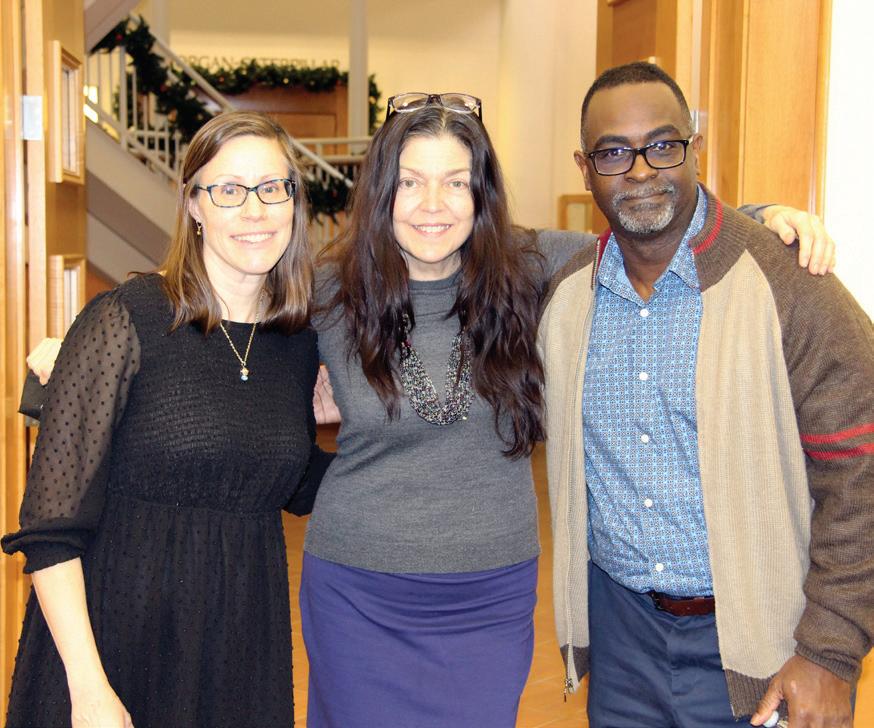
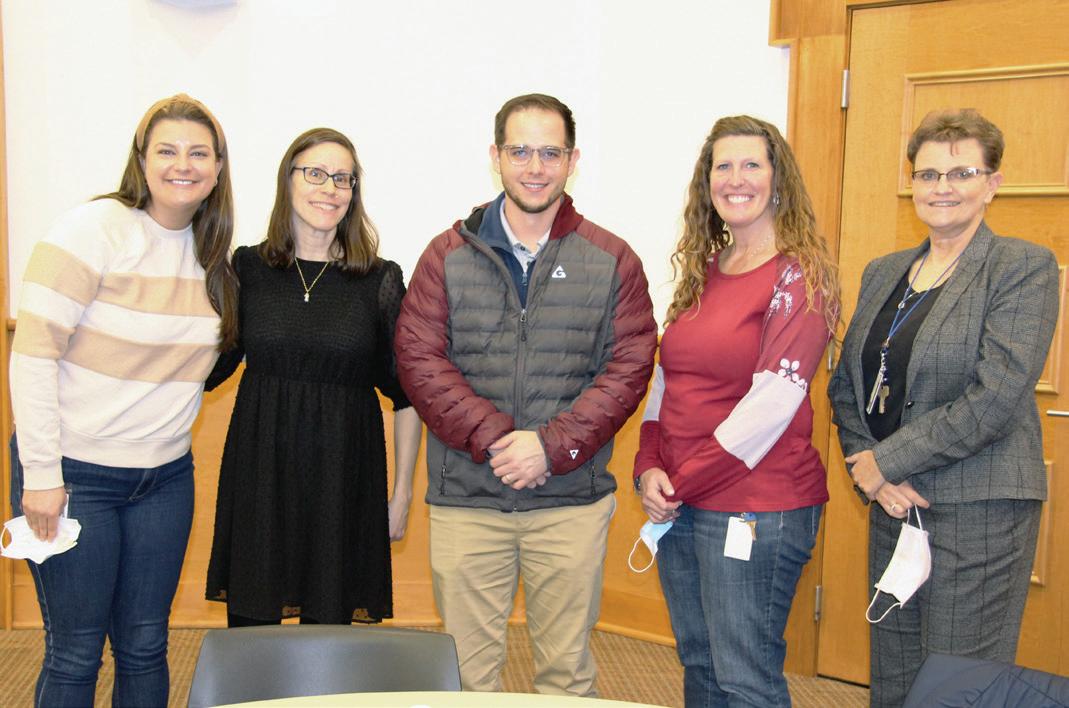
Contribute to the FRC outreach, translation, and dissemination activities such as podcasts, papers, building blocks of resilience briefs
Serve as a reviewer for seed-funding grant proposals
Assist developing FRC networks and reach through introductions, shared memberships, and invited talks
Be an ambassador for FRC (e.g., being an active advocate for FRC activities and priorities)
Provide seminar or guest presentation (e.g., brownbag, colloquium, seminar)
Co-creating and co-leading projects within FRC FRAME research hubs: Family, child, youth, and community health; Risk, resilience, and thriving; Arousal and regulation; Mindfulness and wellbeing; and Evidence
Top left: Champaign County Mental Health Board

Bottom left: Champaign-Urbana Public Health District
Right: Jus Media? Programme Team
13
FRC’S STRATEGIES 4, 5 & 6
4: Provide unique training to promote transdisciplinary and translational mindsets and skillsets.
FRC offers innovative training opportunities that reach community members, academics, providers, and policy-makers to build their transdisciplinary, participatory, and translational capacity. FRC team members lead HDFS 494 Applied Research Methods, a class designed as a year-long supervised research course providing students with first-hand experience working as part of a research team and developing a working knowledge of transdisciplinary research theory and application. Further, HDFS 581 Introduction to Participatory Research Methods is an active learning class during which students co-design and co-implement participatory projects with community partners who also develop capacity for implementing different methods. FRC is developing a certificate open to community members, graduate students, and academics. The FRC website (familyresiliency.illinois.edu) will offer information on future seminars, workshops, trainings, professional development opportunities, and certificate information.
5: Develop systems, processes, activities, and metrics to support and facilitate the day-to-day, emerging, and long-term aspirations of the Family Resiliency Center.
The development of systems and processes provides transparency and promotes efficient and relevant decision-making for resource allocation. Examples of systems and processes that FRC has developed to meet its mission and goals include, but are not limited to:
▶ Collaboratory and collaborator feedback
▶ Communication strategy
▶ FRC steering committee and sub-committees
▶ Internal metrics tracking platform for action plan development, monitoring, and adapting
▶ Partnership management (affiliates; boards/committees; networking/“hub”)
6: Diversify and sustain an infrastructure portfolio including financial and human resources that leverages, maintains, and builds existing and past funding and partnership successes and enables growing in new directions with freedom to explore innovative and “risky” trajectories while growing existing efforts.
FRC is home to cutting-edge research, education, and outreach initiatives that promote thriving among families, children, youth, and communities. Much of our work requires investment in human infrastructure, a.k.a. people. This is especially important as our work requires building trust with partners, which takes time and requires team member continuity extending beyond grant or program cycles. In addition to seeking federal, state, and local funding opportunities, FRC is pursuing creative funding models, resource sharing, and partnerships that support high-risk, high-report ventures in addressing wicked problems and allows flexible and sustained support to make impactful change a reality.
14
APPRECIATION & THANK YOU!
We are so appreciative of all our partners, participants, the College of ACES, Department of Human Development and Family Studies, Christopher Family Foundation, generous donors, and other collaborators for everything you have and continue to do to support the Family Resiliency Center. Thank you for your commitment to turning this strategic plan into successful action, realizing our collective objective to improve the quality of life of the people in the state of Illinois, across the nation, and around the world. Together, we make meaningful and impactful change.
How do I stay informed?

best place to find information about the FRC is on our website at familyresiliency.illinois.edu.
you can have FRC news delivered straight to your email inbox by signing up for our newsletter at groups.webservices.illinois.edu/subscribe/21983 View FRC’s resources page at familyresiliency.illinois.edu/ resources for a full listing of other ways to engage with us, including on social media.
The
Additionally,
Jacinda Dariotis & Doris Kelley Christopher
15
How do I become involved?
Are you ready to help FRC address wicked problems? Your knowledge and expertise are valuable! We invite those interested to join the FRC Collaboratory and become an FRC affiliate or partner.
Learn more about the application process at familyresiliency.illinois.edu/collaboratory
FRC would like to hear from you regarding this strategic plan or if you have suggestions for topics of interest that FRC should explore.
Please email FRC Director, Dr. Jacinda Dariotis, at dariotis@illinois.edu or call 217-244-7754.
Doris
familyresiliency@illinois.edu
FAMILY RESILIENCY CENTER
Kelley Christopher Hall 904 W. Nevada St. MC-081 Urbana, IL 61801 217-244-6486
FAMILYRESILIENCY.ILLINOIS.EDU













 Dariotis, Director
Dariotis, Director
















